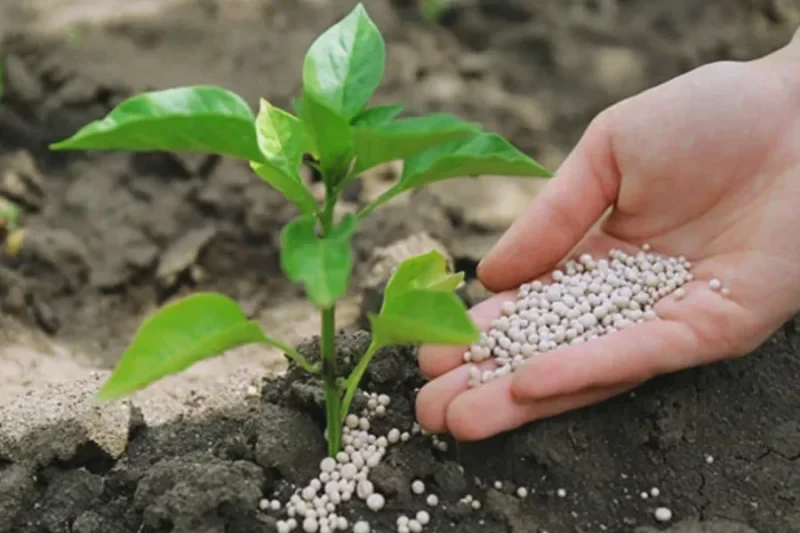Nanomedicine techniques are being redeployed to accelerate transition to more sustainable farming
Nanomedicine techniques are being redeployed to accelerate transition to more sustainable farming


Cancer drugs and agrichemicals can be powerful, but toxic, tools. Now, UNSW scientists are applying nanomedicine insights in a project to make greener agrichemicals more affordable.
Dr. Cong Vu, Adjunct Fellow at UNSW’s School of Chemistry, outlined his research in a recent article exploring how the principles of nanoparticle design—originally developed to fight cancer—can be applied to agriculture. In the article published in Nature Communications, Dr. Vu explains how design principles from nanomedicine, such as altering the size, surface, and material of nanoparticles that encapsulate cancer drugs, could be used to target and deliver agrichemicals to plants more effectively.
Dr. Vu, who is also the founder of the UNSW agrichemicals startup, NanoSoils Bio, says the ultimate goal is to create nanotechnology products that improve pesticide and fungicide delivery, promoting cleaner and more sustainable agriculture. NanoSoils Bio filed for its first two patents on processes designed to optimize nanoparticle efficiency. In addition to developing improved pesticides, NanoSoils is also working on creating silica nanoparticles that will help cotton crops become more resilient to drought.
Article co-author and Nanosoils scientific advisor, UNSW Scientia Professor Justin Gooding, emphasizes the significance of this crossover between nanomedicine and agriculture. Prof. Gooding notes that nanomedicine has more patents and over twice as many publications as nano-agriculture. Insights from nanomedicine, therefore, hold the potential to lower one of the biggest barriers to nano-agrochemical innovation—cost.
“Rather than starting from scratch, Dr. Vu is leveraging existing knowledge to address pressing issues in agriculture and the environment,” he says.
See the original post here

 | Videos | More... |

Video: Nuclear energy will destroy us? Global warming is an existential threat? Chemicals are massacring bees? Donate to the Green Industrial Complex!
 | Bees & Pollinators | More... |

GLP podcast: Science journalism is a mess. Here’s how to fix it

Mosquito massacre: Can we safely tackle malaria with a CRISPR gene drive?

Are we facing an ‘Insect Apocalypse’ caused by ‘intensive, industrial’ farming and agricultural chemicals? The media say yes; Science says ‘no’
 | Infographics | More... |

Infographic: Global regulatory and health research agencies on whether glyphosate causes cancer
 | GMO FAQs | More... |

Why is there controversy over GMO foods but not GMO drugs?

How are GMOs labeled around the world?

How does genetic engineering differ from conventional breeding?
 | GLP Profiles | More... |

Alex Jones: Right-wing conspiracy theorist stokes fear of GMOs, pesticides to sell ‘health supplements’




 A single high dose of LSD can ease anxiety and depression for months
A single high dose of LSD can ease anxiety and depression for months From plastic coasters to human hearts: Inside the race to print the human body
From plastic coasters to human hearts: Inside the race to print the human body CRISPR pork: U.S. approves first gene-edited pigs for consumption
CRISPR pork: U.S. approves first gene-edited pigs for consumption Viewpoint: Life and death decisions: RFK, Jr.’s shady FDA “expert panels” operate in secret with no transcripts or conflict of interest reviews
Viewpoint: Life and death decisions: RFK, Jr.’s shady FDA “expert panels” operate in secret with no transcripts or conflict of interest reviews ‘SuperAgers’: Why some people have the brains and memory capacity of people decades younger
‘SuperAgers’: Why some people have the brains and memory capacity of people decades younger  Baby food panic, brought to you by trial lawyers hoping to prosecute by press release
Baby food panic, brought to you by trial lawyers hoping to prosecute by press release From ‘Frankenfood’ to superfood: Can the purple tomato overcome GMO myths to win over consumers?
From ‘Frankenfood’ to superfood: Can the purple tomato overcome GMO myths to win over consumers? When farmers deny science: The hypocrisy hurting agriculture’s credibility
When farmers deny science: The hypocrisy hurting agriculture’s credibility
